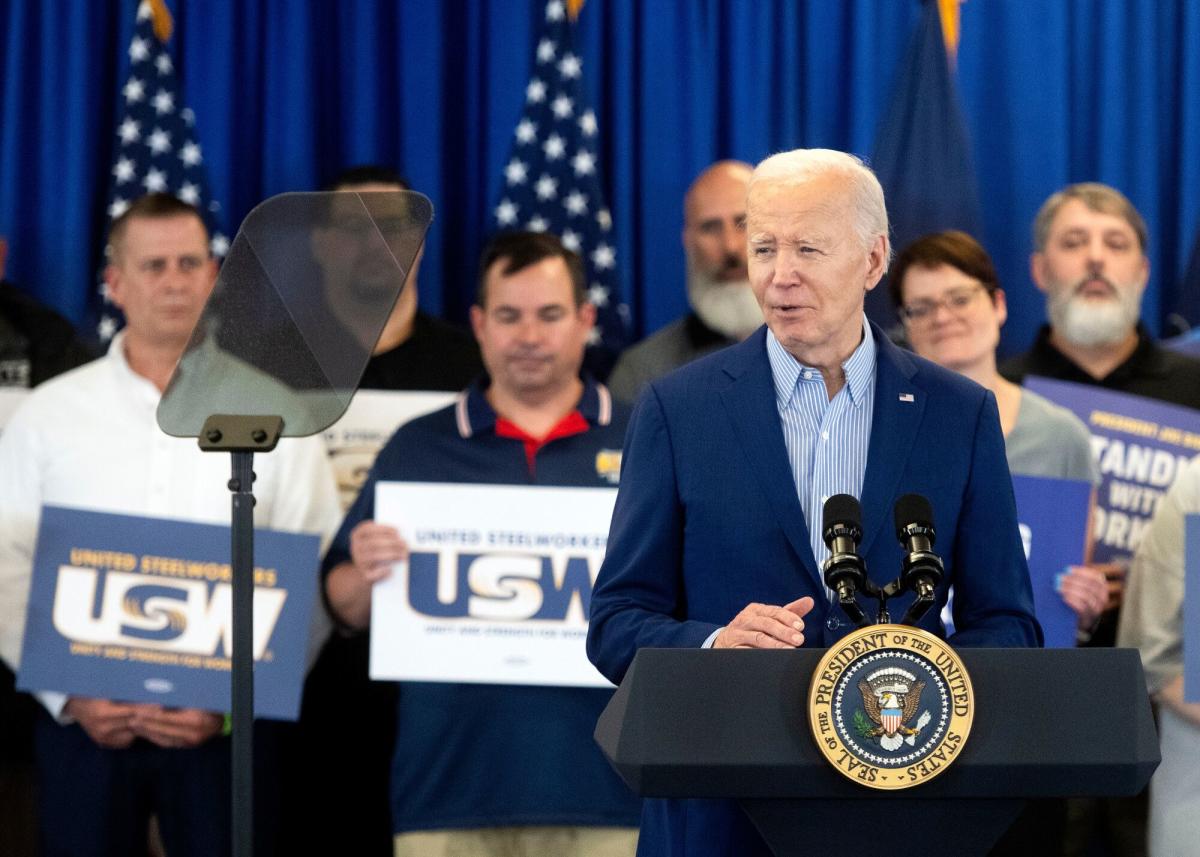(Bloomberg) — US President Joe Biden is preparing to block Nippon Steel Corp.’s $14.1 billion takeover of United States Steel Corp., according to people familiar with the matter.
Most Read from Bloomberg
But US Steel, responding on Wednesday evening, vowed to “pursue all possible options under the law to ensure” that the sale is completed.
The proposed deal has been subject to a review by the secretive Committee on Foreign Investment in the United States, and Biden plans to kill it as soon as the CFIUS referral lands on his desk, said the people, who asked not to be identified because the move hasn’t yet been announced. A decision could be made as soon as this week, they said. The Washington Post earlier reported on Biden’s plan.
Shares of US Steel closed 17% lower in New York, the biggest decline since April 2017.
“We have not received any update or executive order in relation to the CFIUS process,” US Steel said in a statement. “We continue to stand by the fact that there are no national security issues associated with this transaction, as Japan is one of our most staunch allies. We fully expect to pursue all possible options under the law to ensure this transaction” goes through.
The proposed acquisition touched off an election-year firestorm in the crucial swing state of Pennsylvania, where US Steel and the United Steelworkers union that opposes the deal are both based. CFIUS hasn’t yet transmitted its recommendation to the president, a White House official said.
Any move to block the deal could potentially be subject to litigation. There’s no sign that Nippon Steel plans to walk away voluntarily, one of the people said.
The past two weeks have brought a drumbeat of developments, including a fresh $1.3 billion commitment from Nippon Steel, a commitment to use an American-majority proxy board and a warning from US Steel that the deal’s death may spell the end of some of its plants.
Biden has long pledged that US Steel, an iconic American company headquartered in Pittsburgh, should remain domestically owned and run, a stance with which Vice President Kamala Harris, the Democratic presidential nominee, is also aligned. Harris announced her position at a Labor Day event in Pittsburgh on Monday.
Donald Trump, her Republican opponent in November’s election, had outright vowed to block the deal if elected to the White House.
There’s little precedent for the move. Proponents of Nippon Steel’s bid say the US shouldn’t reject a bid from a company based in an allied country such as Japan, particularly one that could create a joint entity with scale to compete with China.
CFIUS investigations are notoriously secretive, with little public hint of progress or timeline. CFIUS is a panel of government officials that reviews proposals by foreign entities to purchase companies or property in the US. It is chaired by the Treasury Department, but also includes members from the State, Defense, Justice, Commerce, Energy and Homeland Security departments.
Because it never comments on individual reviews and often relies on classified information to decide whether to oppose or clear a deal, its investigations are effectively a black box.
It’s not clear what the panel’s decision is, or whether it has made one.
The last time a US president used CFIUS to block a deal was in May, when Biden ordered a Chinese crypto company to sell and vacate land near a US air force base. Prior to that, only seven deals had ever been blocked.
If the Nippon Steel deal is successfully blocked, the fate of US Steel remains unclear. The company warned Wednesday that failing to complete the deal would imperil thousands of jobs and force the company to pivot away from some of its legacy blast furnace facilities, including those in Pennsylvania, and potentially even relocate its headquarters from Pittsburgh.
–With assistance from Doug Alexander and Daniel Flatley.
(Updates with US Steel statement, starting in second paragraph.)
Most Read from Bloomberg Businessweek
©2024 Bloomberg L.P.

